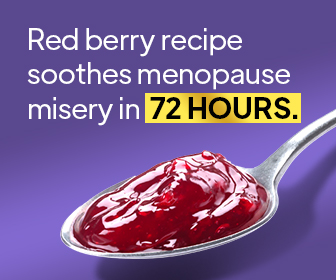Activated charcoal has received a huge amount of media attention lately. The latest in a line of fad products that have been claimed as a cure to everything from toxins to teeth whitening (in a counter-intuitive turn of events). With attention from prominent bloggers and many companies attempting to shoehorn this product onto shelves to soak up the hype, it is important to shine a light on the effects of this new trend.
Some would argue that activated charcoal is a modern-day snake oil: it has been associated in the media (but not the scientific literature) with cancer prevention, curing various diseases, removing “everyday toxins” (without a real definition), and has seen popularity as a cosmetic therapy for skin, teeth, and hair.
This article is going to discuss the scientific evidence surrounding charcoal and how many of these claims are true. We’re going to share the highlights and lowlights of charcoal so that you can form your own opinion and remain in control of what you choose to put into your body.
What is Activated Charcoal?
Activated charcoal is made by heating regular charcoal to increase the absorption abilities, making it far more suitable as a form of medical or dietary supplement. This improved absorption of fluids makes it a much more easily-consumed product and improves the health benefits associated with its consumption. The ability to absorb water allows charcoal to bind to water-soluble compounds and provides a great source of pure dietary fiber.
Pros of Activated Charcoal
1. Removing Toxins (Acetaminophen)
Despite the hype surrounding cleanse diets and the removal of toxins from the body, charcoal does not have the miraculous detoxifying properties that many commentators have claimed. The root of these claims is the use of charcoal for the removal of a single, specific compound from the body.
In medical and pseudo-medical settings, however, charcoal has been shown to be effective at the removal of acetaminophen from the body. Acetaminophen is an anti-fever medication that is found in medicines for the common cold and similar illness, but is easily overdosed. Charcoal can assist in the removal of this particular compound from the body, contributing to recovery and a return to health.[1]
This is definitely a large benefit to the use of charcoal from time to time, but it is a very specific context and it should be remembered that “toxins” are usually ill-defined and harmful compounds are wildly different. Do not use charcoal for other forms of overdose – consult your medical professional!
2. Removing Anticoagulants and Other Medications from Your Body
Charcoal also has some small clinical support for its use in clearing out anticoagulants and other overdosed medicines. The use as a chelating agent for anticoagulants is an interesting prospect, but only appears in a single study, though no contrasting research has been performed yet. Again, as with the removal of acetaminophen, this is not a home remedy and anticoagulation medicine should only be administered or countered in certain contexts under the supervision of a medical professional.
The use of charcoal for combatting anticoagulation overdose is useful in incredibly limited situations. Overdose on anticoagulants is a serious, life-threatening condition and cannot be treated with the ingestion of charcoal. If you are experiencing the symptoms of overdose or have been diagnosed with a condition that makes this medication necessary, medical-grade drugs are a better choice than dead wood!
These questionable effects apply equally to other compounds that might only need to be eliminated from the body in particularly trying, life-threatening situations. Charcoal has been shown to have moderate effects on the removal of other highly-specialized medications from the body:[2]
- Antiarrhythmics
- Antibiotics
- Antidepressants
- Antihistamines
- Antitussives
- Bronchodilators
- Aspirin
These are incredibly niche effects, and we don’t recommend attempting to deal with any of these problems in your own home. Home remedies are fine when they are not associated with risks, but overdose on any of these compounds can be a serious health risk – one that should be remedied in A&E, rather than through the consumption of charcoal. We struggle to foresee any situation where the ingestion of an anti-antitussive compound will be necessary for the health and fitness enthusiast.
3. Anti-Diarrheic, Anti-Indigestion
Charcoal has some interesting effects on your digestive system. The first is related to its effect on the stool: charcoal has the unique property of turning your stool a deep black color (unsurprising), but also reduces the incidence of diarrhea and improves movement. It is also packed with dietary fiber (because you can’t digest dead, burned tree bark) making it a great choice for improving the regularity and consistency of bowel movements.
Research on the anti-diarrheic effects are thin on the ground, but theoretically the high fiber content, water-absorption, and tendency to bind with other substances is a great indicator. We suspect that future evidence will vindicate charcoal as an anti-diarrheic. Equally, a single study demonstrates the positive effects of charcoal on the reduction of indigestion and other digestive conditions.
Indigestion is a serious concern, especially when it occurs as part of the larger pattern of symptoms known as acid reflux. We’ve discussed acid reflux before, but it is an unpleasant condition that can cause long-term damage to the esophagus and other crucial tissues. If this lone study is correct, charcoal is a promising home remedy or supplement to combat the likelihood of indigestion. There are many such tablets on the market, but if you’re insistent on using bark, this looks like a great choice.
4. Reduction in LDL Cholesterol
There has been a greater deal of research invested into the effects of charcoal on LDL or bad cholesterol. There were some promising effects in these studies, with reductions noted almost unanimously among subjects.[3] However, further research continues to be necessary: these studies used low populations which makes their results less reliable and generalizable. Simply put, it is hard to say that this study suggests that charcoal can have a significant effect on the long-term LDL of the whole population.
LDL concentrations play into huge killers in the United States like cardiovascular disease and stroke. These heart conditions are increasingly common due to the decline of diet quality and exercise regularity in the American culture. While early studies may be promising, they are far from conclusive and improvements in LDL were modest at best. The intake of charcoal is not going to undo all the poor lifestyle choices that caused elevated LDL levels.
5. NSAID Elimination
Perhaps the most promising use of activated charcoal, the elimination of NSAIDs (non-steroidal anti-inflammatory drugs), has been mostly-overlooked by low-quality health sites. These sites, focusing instead on dubious claims about detoxifying, ignored the fact that early studies suggest that charcoal can aid in the removal of drugs that are often in the system and cause damage to the digestive system.
NSAIDs like ibuprofen are commonly used in the United States, especially in the treatment of recurring problems like menstrual cramps and headaches. The use of these anti-inflammatories, however, strips the stomach lining and damages important structures and good bacteria in the gut during digestion.
The fact that these are so commonly used in the American culture, and that their use for menstrual cramps consists “chronic” use, there is real benefit to being able to remove them from the body. If this early study is correct, it can reduce the long-term digestive problems that face women who medicate against menstrual pain using ibuprofen. Because the timings of their use is predictable, it is possible to use charcoal to accelerate removal from the body once the pain has been blunted.
The evidence on this effect is tentative and requires corroboration in further studies, but it is the most interesting and promising effect of activated charcoal.
Cons for Activated Charcoal
There are only two real cons to charcoal ingestion. The first is simply that it does not have any of the real health-benefiting effects that were initially claimed of it, with the vast majority of the popularity being the result of hype rather than results. The second is that it tends to react poorly with other forms of orally-administered prescription medications.
1. The HYPE: Toxins, Antibiotics, Ethanol Build-up, and Antihistamines
The suggestion that charcoal can remove toxins and other harmful compounds from the body is patently false. Even among the medicines mentioned above, the effectiveness of charcoal is never above “modest” and conflating studies make it dubious that it has any real benefits for genuine antigens.
The effectiveness of charcoal in removing many compounds has been debated in the literature, and there are very few well-established effects beyond the removal of acetaminophen and mild LDL reductions. This makes it a hyped fad supplement rather than a well-documented compound for the reduction of dangerous health markers.
The worst thing that we can say about charcoal is that it simply does nothing: it does not appear to have large positive or negative effects on health in otherwise-healthy adults. There are some early studies that indicate a positive effect on certain digestive health markers and predictors, but research has yet to validate these benefits.
2. Interactions with Other Medications
The only real concern we have for the health effects of charcoal are associated with its negative interactions with orally-administered prescription medications. The effects of charcoal on the filtration of acetaminophen and other compounds (like NSAIDs) also seems to extend to poor interaction with key medicines.
If you’re on any form of essential medication (specifically medication for blood pressure, angina, or other heart conditions), it is incredibly unwise to consume charcoal tablets. These tablets are relatively innocuous for most people (because they don’t do much), but they can have huge negative health impacts by negating important medications. If you’re looking to improve your health, charcoal tablets don’t make much sense if you have a pre-condition of the heart or digestive system.

Summary: What Should You Do Now?
There isn’t much to endear activated charcoal to us: this compound is the product of industry hype in an industry that is notorious for selling useless (and even harmful) compounds to an unwitting audience. With enough hype, supplement companies and the many pop-up companies that aimed to capitalize on charcoal made it a big deal in the market.
The science only really backs up the usefulness of charcoal as a chelating agent in the removal of very specific medication. This might be useful, but this situation requires much greater scientific examination.
Charcoal may be a promising choice for the reduction of the negative health effects of NSAIDs like ibuprofen, and has almost no negative effects on health (as long as you’re not taking it with other medications). This is a personal choice, as there are very few studies on the effectiveness of these effects, and they may well be anomalous data. However, with the severe risks associated with prolonged NSAID consumption, charcoal may be the lesser of two evils.








